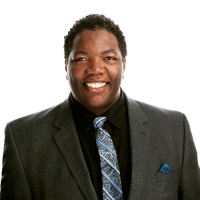Dimondale White Collar Crime Lawyer, Michigan
Sponsored Law Firm
-
 x
x

Click For More Info:
-
Law Office of Mark S. Guralnick
55 Madison Avenue 4th Floor Morristown, NJ 07960» view mapCriminal Defense Law Dedicated. Fearless. Successful.
Mark S. Guralnick and his legal team have helped clients throughout the USA and across the world by applying unparalleled dedication and hard work to each case.
800-399-8371
Not enough matches for Dimondale White Collar Crime lawyer.
Below are all Dimondale Criminal lawyers.
Richard L. Williams
✓ VERIFIEDCriminal, Traffic
Attorney Richard L. Williams provides legal services for driver’s license restoration, expungement of criminal records, domestic assault, civil infr... (more)
Bobby Alonza Ficklin
✓ VERIFIEDCriminal, Social Security, Divorce
Bobby Ficklin is a practicing lawyer in the state of Michigan.
Sarah Anne Williams
Criminal, Banking & Finance, Bankruptcy & Debt
Status: In Good Standing Licensed: 15 Years
Scott Grabel
Juvenile Law, Deportation, Medical Products & Devices, Criminal
Status: In Good Standing
Kareem LaMount Johnson
Felony, DUI-DWI, Criminal, Insurance
Status: In Good Standing Licensed: 16 Years
FREE CONSULTATION
CONTACTJohn M. English
White Collar Crime, DUI-DWI, Criminal, Personal Injury
Status: In Good Standing Licensed: 25 Years
Rico D. Neal
White Collar Crime, Criminal, Identity Theft, Litigation
Status: In Good Standing Licensed: 18 Years
 Mark Guralnick Morristown, NJ
Mark Guralnick Morristown, NJ AboutLaw Office of Mark S. Guralnick
AboutLaw Office of Mark S. Guralnick Practice AreasExpertise
Practice AreasExpertise


